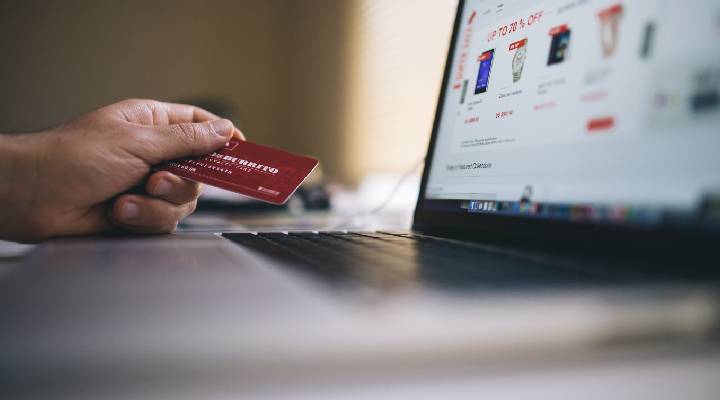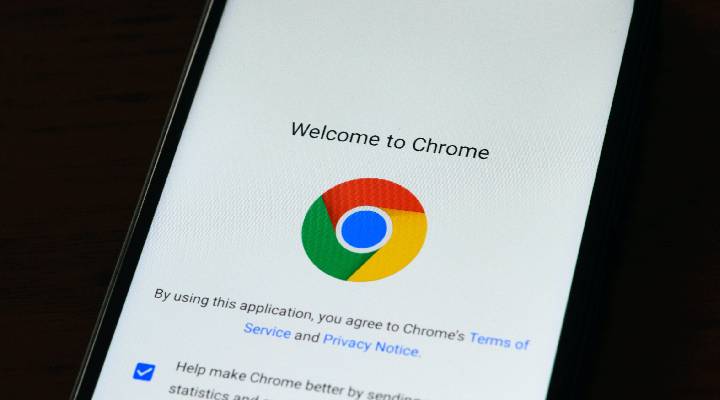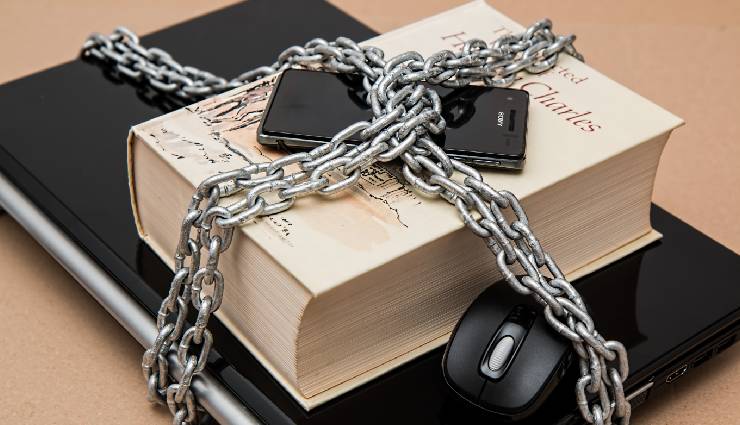These days, virtual space has made all the work easy, but this space is not such a low risk. Every click and visit you make on websites and social networks create a digital footprint. Every time you publish your thoughts or images on the Internet, different people, including cybercriminals, may see them. They can access your financial information and other sensitive data in different ways. Organizations that collect and use your data are responsible for protecting it, but why not be more cautious yourself? How do you ask? Don’t worry, because this article will explain the necessary measures to protect your privacy. Of course, it is better to say a little about the concept of privacy in cyberspace, the laws related to it, and the punishment of violators before stating these solutions.
What is privacy in cyberspace?
Internet privacy, also called online privacy or cyberspace privacy, is a subset of data privacy and one of the fundamental human rights. This right refers to privacy when displaying, storing, or providing information about yourself on the Internet. But, you have the right not to disclose some of your information to others and keep it personal and private in cyberspace and the real world.
Protecting privacy in cyberspace is one of the critical issues that have been paid attention to in all countries. From European countries to America, South Korea, and India, they have all enacted laws and regulations to protect people’s privacy and information in cyberspace. In our country, a comprehensive law has not yet been passed to protect people’s data in cyberspace. Despite this, jurists recognize the crime of entering privacy in cyberspace by referring to the articles and principles in the constitution, computer crimes, electronic commerce, and other laws.
Cyber privacy rules
In our country, there are various and scattered laws and regulations about privacy violations in cyberspace, the important examples of which are:
- Articles 22 and 25 of the Constitution;
- Articles 58 to 61 of the Electronic Commerce Law;
- Article 17 of the Computer Crimes Law;
- Articles 582 and 604 of the Islamic Penal Code;
- Articles 14 and 15 of the law on publication and free access to information.
In all these laws, respecting people’s privacy in cyberspace is accepted as a general principle, and punishments are prescribed for violators. For example, the penalty for entering privacy in cyberspace is determined as follows in Article 17 of the Law on Computer Crimes:
Anyone who publishes or makes available to others, through computer or telecommunication systems, private or family audio or video or other secrets without his consent, in a way that leads to loss or defamation of his dignity, shall be imprisoned for 91 days. Up to 2 years or a fine from 5 to 40 million Rials or both.
To complain about privacy violations, you can refer to the FATA Police or the Computer Crimes Prosecutor’s Office, citing the documents and evidence you have.
In our country, a comprehensive law has not yet been enacted to protect people’s privacy in cyberspace and social networks. Still, in 2016, the Ministry of Communications and Information Technology published a draft bill on protecting data and privacy in cyberspace. It should be noted that this bill has not yet been approved by the Islamic Council and has not become law.
How to protect your privacy online?
Those who violate the privacy of others in cyberspace are punished, but isn’t it better to protect our personal information in this space? We should all strive to protect our data and secure our systems and electronic devices. There are many measures to protect privacy in cyberspace and increase cyber security, and we will explain the most important ones below.
1. Ask about how we protect your privacy
One of the best things you can do to protect your personal information on the Internet is to ask yourself these four questions when making any online transaction:
- Who collects my information?
- Is it necessary to provide this information to transact, buy, and sell goods or services?
- What happens to my data?
- What are the consequences of providing this information?
You should find the answer to these questions in the privacy policy of the website or social network you are considering. Usually, in this policy, the rules for collecting, using, or disclosing your information and the methods of protecting it are written. This policy is often found at the bottom of website pages or next to their introduction section. If you do not see this policy on the website or social network, contact the privacy officer of that website or social network to be sure. If you do not like any of the provisions of this policy, do not provide your personal information or sensitive data such as medical or financial data.
Sometimes companies use your personal information for market analysis or other marketing purposes. For these reasons, they may share your information with other companies. The best case is that the companies active in the field of virtual space allow you to express your consent for using your information or to completely opt out of receiving the services of that company.

2. Limit the sharing of personal information
Are you looking for an intelligent way to protect your online privacy? Don’t post too much information about yourself on social media. Providing too much information on Instagram, Twitter, and the like can make it easier for cybercriminals to access your identifying information. If so, your identity may be stolen and forged, you may become a victim of crimes such as Internet fraud or cyberbullying, or criminals may gain access to your financial information.
To protect your privacy online, it is best to avoid entering accurate information in the “About Me” section of social networks. Not everyone needs to know what year or where they were born. Providing such information online makes you an easy target for identity theft.
In addition, you should never ignore the privacy settings in social networks. Using this section, you can limit the number of people who can see your content.
3. Choose a complex password
Another important thing you should do in social networks and cyberspace, in general, is to pay attention to your passwords. Choose strong and complex passwords for all your online accounts to prevent your information from being hacked. The best password combines numbers, special characters, and upper and lower case letters.
Using the multi-step authentication option built into most social networks is also better. By activating this option, the possibility of hacking the user account or becoming a victim of a cyber attack is significantly reduced.
4. Pay attention to your browser
Internet companies and websites track everything you do online. Every online ad, social network, and the website collects information about your location or browsing habits. Collected information reveals more about your personality and identity than you think. For example, you may think of yourself as a knowledgeable person who never writes about his medical problems and illnesses on Twitter or shares all his beliefs on Facebook, but this is not true. There is always the possibility that the websites you visit daily will share all your data with other companies for marketing purposes.
To protect data in such cases, you can use browser extensions such as uBlock Origin. Such plugins prevent malware from running in the browser. Installing them is also an easy way to block ads.
In addition, it is better to delete your cookies when you exit the browser. These cookies must be deleted regularly so that websites, advertising companies, and other parties cannot use them to track you online.
Another way to secure your browser is to go to websites with the word “https” in their URL and an image of a small green lock. This phrase indicates that your information is encrypted and secure.

5. Install a powerful antivirus
Today, Internet viruses and malware are not as common as they were a decade ago, but they are not over yet! Malware may pose one of the following risks:
- unauthorized access to personal and financial information;
- remote computer control by hackers;
- You are tracking the location of people.
You can protect your personal information with a few simple steps. Installing a powerful antivirus program is one of these tasks. These programs should be updated regularly because the developers of such programs discover new ways to protect your data daily. So you should enable automatic updates for these apps or update them as soon as a new version is released. It is also better to activate your computer’s firewall system. This system will prevent unauthorized access to your information.
In addition, you should also pay attention to the security of your other electronic devices, such as mobile phones, and take all the steps mentioned for them.
6. Report phishing
If you have received a suspicious email at your workplace, report the matter to the company’s IT manager as soon as possible. If you are at home and have received a suspicious email or text message, do not click or reply to any links, as it may be phishing. In this situation, you can block the sender of the email or SMS and report the matter to FATA police.
7. Use secure Wi-Fi internet
Wireless internet networks or hotspots are not always secure. An anonymous Wi-Fi internet connection allows its owners to monitor all your Internet or computer activity. So it is better to avoid connecting to anonymous Wi-Fi. If you use public Wi-Fi, it is better not to enter important user accounts such as email or financial statements.
final word
Protecting your privacy in cyberspace is one of your fundamental rights, and you should strive for it. Violation of confidentiality is indeed recognized as a crime in various laws, but by using the methods we have mentioned, you can ensure your privacy on the Internet. It has long been said that prevention is better than cure.



